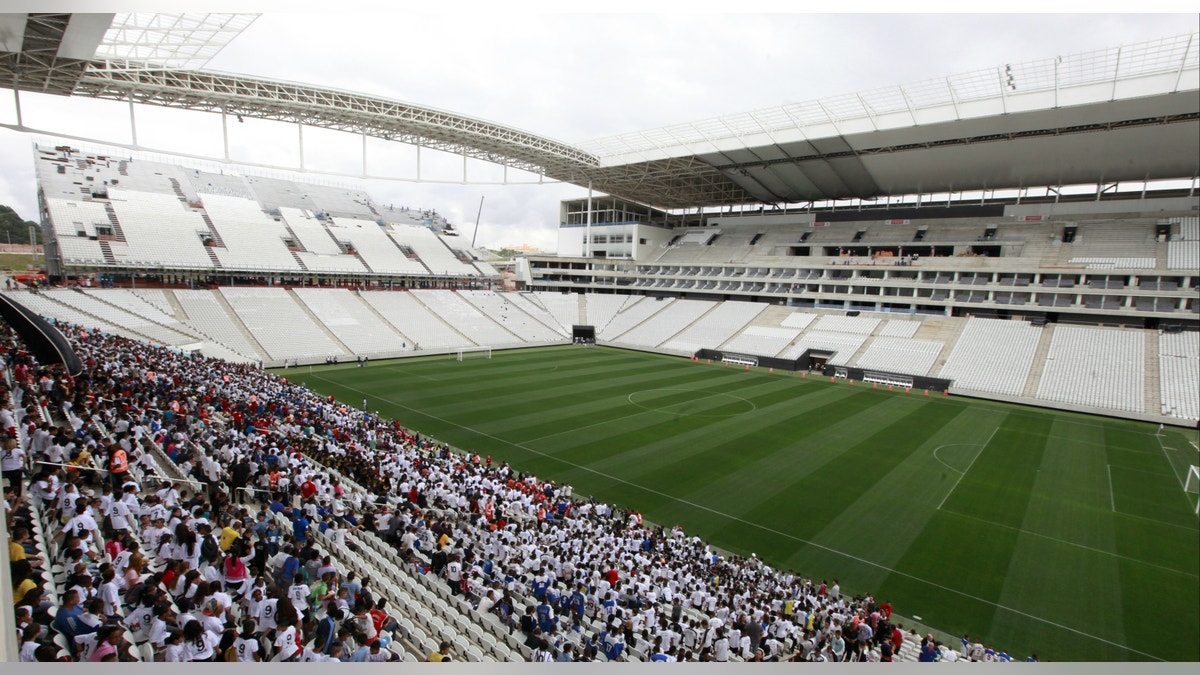
People stand in the bleachers during an infrastructure test at Arena de Sao Paulo Stadium, one of the venues for the 2014 World Cup. (REUTERS/Paulo Whitaker)
The risk of an outbreak of dengue fever during the upcoming soccer World Cup in Brazil is serious enough to warrant a high alert in three of the 12 host cities, according to an early warning system for the disease.
Scientists who developed the system said the overall threat of the disease during the month-long competition was low, but they warned that the northeastern venues of Natal, Fortaleza and Recifethere faced a serious risk.
Dengue, sometimes called breakbone fever because of the severe pain it can cause, is a viral infection transmitted by a type of mosquito called Aedes aegypti. It can range from a mild, flu-like illness to a potentially deadly one, which develops in around 5 percent of patients. There are no vaccines or effective treatments.
Brazil has more cases of dengue fever than anywhere else in the world. More than 7 million infections were recorded between 2000 and 2013.
Rachel Lowe, from the Catalan Institute of Climate Sciences in Barcelona, who helped develop the warning system, said the possibility of an outbreak during the World Cup large enough to infect visitors and spread back to their home countries will depend on a combination of factors.
This include having large numbers of mosquitoes, a susceptible population and a high rate of mosquito-human contact, she said.
"Our aim was to take the available evidence on real-time seasonal rainfall and temperature forecasts, transmission dynamics, and social and environmental variables and combine it with the latest in mapping and mathematical modeling to produce robust risk estimates for the 12 host cities," she said.
The results, published in The Lancet Infectious Diseases journal on Saturday, showed the overall risk of an outbreak is low in the host cities of Brasolia, Cuiaba, Curitiba, Porto Alegre, and Sao Paulo. But it increases in cities like Rio de Janeiro, Belo Horizonte, Salvador and Manaus.
The cities with the highest risk are Natal, Fortaleza, and Recife, Lowe said.
"The ability to provide early warnings of dengue epidemics at the microregion level, three months in advance, is invaluable for reducing or containing an epidemic and will give local authorities the time to combat mosquito populations in those cities with a greater chance of dengue outbreaks," she said.








































